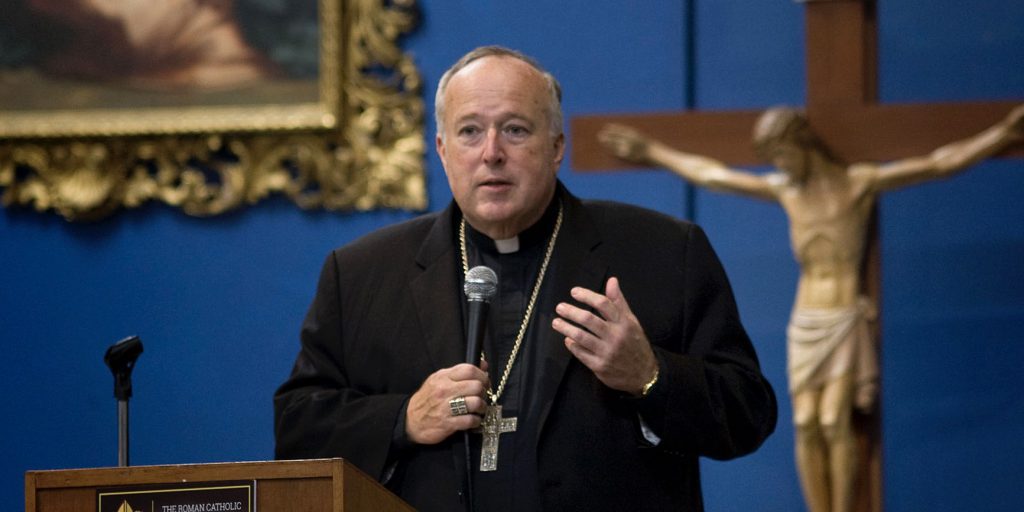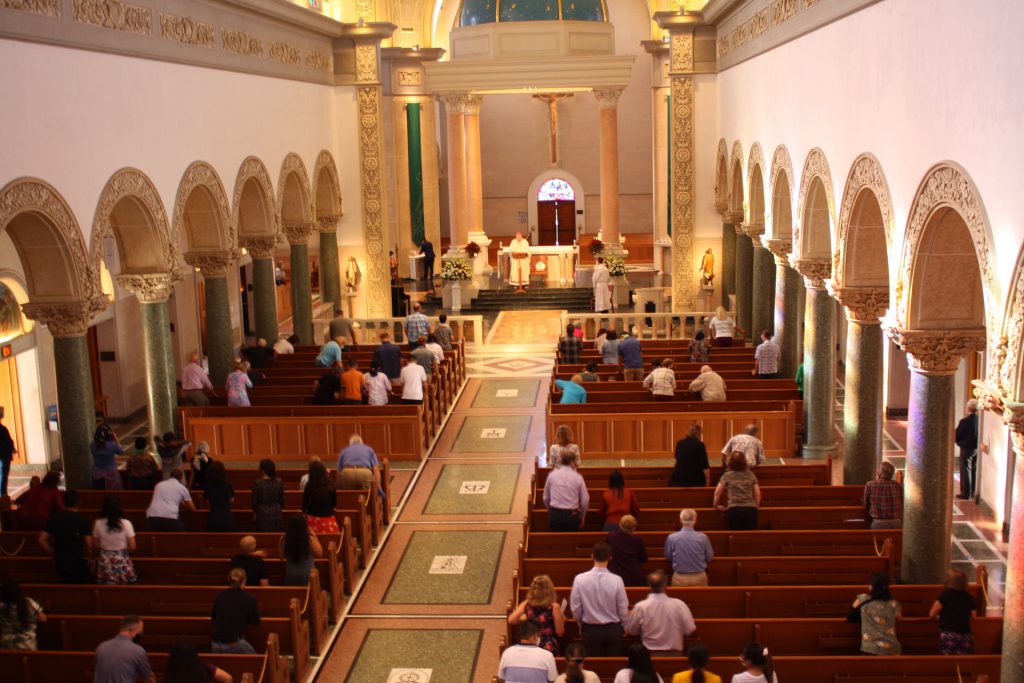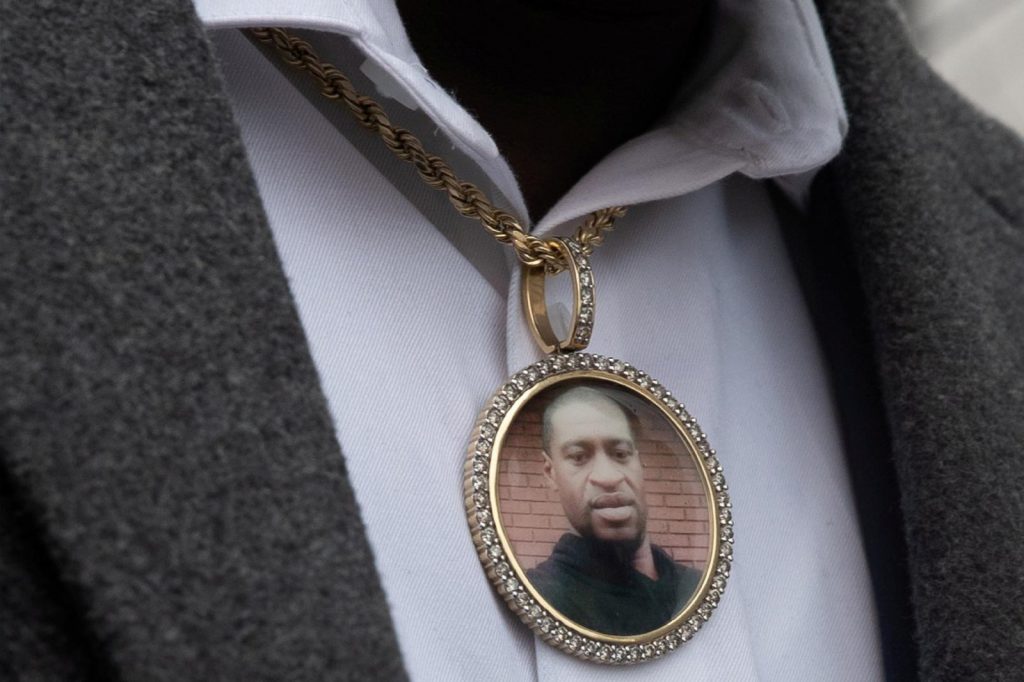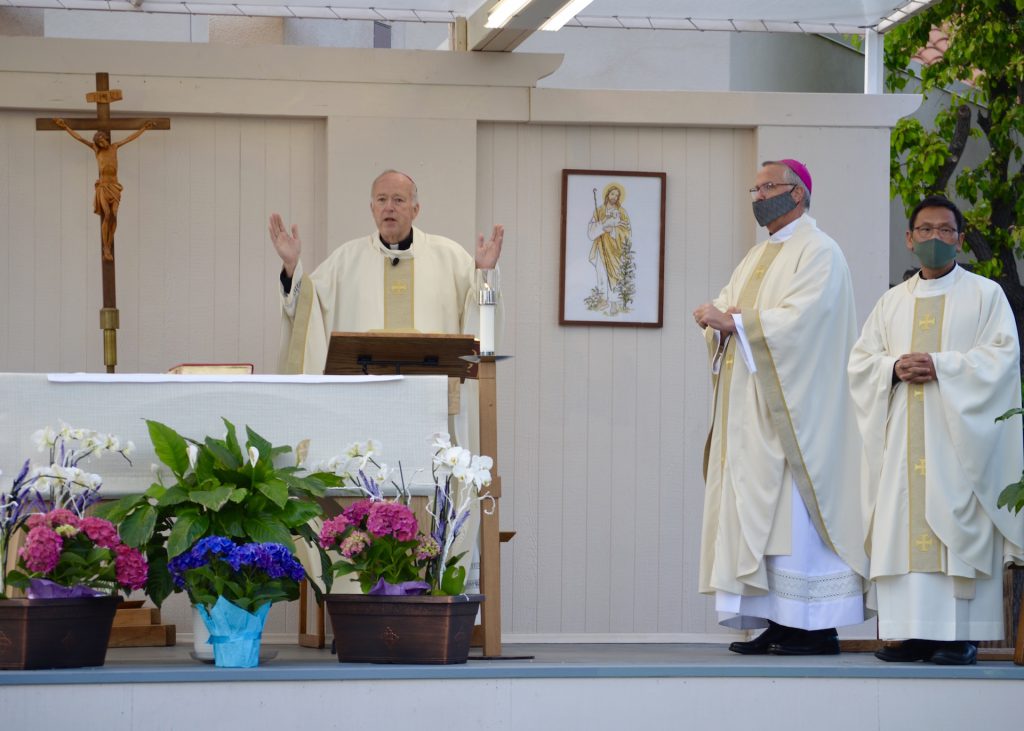SAN DIEGO — The Church on a national, state and local level is raising its voice against racism, calling for a transformation in the systems that discriminate against African Americans and other communities of color, and challenging Catholics to seize the moment to act, not merely “to stand silent.”
San Diego Bishop Robert W. McElroy issued three statements in June addressing the killing of George Floyd by a white police officer in Minneapolis and the ongoing protests that followed across the country demanding racial justice.
In “Finding Grace Within the Republic of Suffering,” a statement he issued on June 1, the bishop acknowledged that “the peril and the burden of a pandemic have worn us down.”
“And alongside this exhaustion … the seismic fault line that is the greatest shame of our nation’s past and present — our legacy of racial prejudice, violence and silence — has erupted once again and now tears apart the fabric of our society,” he continued. “The death of one man — in the killing of George Floyd — conveys the evil of 400 years of racial oppression.”
“Where lies grace in a moment such as this?” the bishop asked.
“It lies in the words of Terrence Floyd, George Floyd’s brother, who in the midst of overwhelming grief pointed the way forward for our nation when he called for a peaceful unity to replace the destructive unity of looting, violence, divisive nationalism and partisan tribalism. We are in a moment which calls out for an unstoppable commitment to forge a new solidarity in our nation, finding in the very suffering of these past months a foundation for compassion and unity, friendship and peace.”
The bishop celebrated a Mass at The Immaculata on June 6 to pray with the diocese’s Black priests and deacons and the leaders of the Catholic African American community.
“We must confront the reality that ever since the first Black men were forcibly brought to Virginia to labor in bondage, the African American community in the United States has been hung upon the cross in a uniquely systematic manner rivaled only by our country’s treatment of Native Americans,” he said in his homily.
“This time on the cross continues in the interconnecting legacies of slavery and racial prejudice that have produced economic and social barriers to progress for the African American community in every sector of our national life …
“If our love for Jesus Christ, hanging on the cross, is to have meaning for us, it must compel us to move dramatically and unceasingly to end the institutionalized suffering which the African American community has endured all throughout our history as a people. We cannot simply pass by in silence, as the crowd did while our Lord was crucified.”
The bishop united his voice to those of more than 20 other Christian, Jewish and Moslem faith leaders who held a press conference on June 11 at the diocesan Pastoral Center. They called for reform of the law enforcement, judicial and penal systems. And they vowed to work with their congregations to raise awareness of racism and what they could do to eradicate it.
Bishop McElroy is the president of the California Catholic Conference and San Diego Auxiliary Bishop John P. Dolan leads its ad hoc committee on racism. Bishop Dolan coordinated the production of a video depicting the 14 Stations of the Cross to call attention to the state’s history of racism and to pray for its end. The Conference released it on Juneteenth, the day the African American community celebrates emancipation.
Each of the 12 (arch)dioceses and two Catholic eparchies in the state taped a segment at a location with deep racial history. These included Oakland’s Fruitvale BART Station, California’s first African-American Catholic Church, and one of the first public schools to desegregate.
The San Diego Diocese taped the Tenth Station, where Jesus is stripped of His garments, at a location in the North Park neighborhood where the KKK headquarters stood in the 1920s.
“Part of the humiliation of crucifixion was that the prisoner was stripped naked. This was done in an attempt to deny the condemned person’s dignity,” the bishop says in the video.
“Racism also attempts to strip others of their dignity. … Our nation’s history is tarnished by the enslavement of African Americans, Jim Crow laws, mistreatment of Native Americans, Chinese exclusion laws, Japanese internment camps, and anti-Hispanic discrimination. These patterns of racism flourished in part because ‘good’ people too often remained silent.
“We are called to transform our society with God’s love. Yet our society still allows some to be stripped of their dignity … How can we not stand humiliated before the cross, knowing that we have failed to adequately protect the dignity of all our brothers and sisters?”
Meanwhile, the Church itself became the target of protest. Demonstrators toppled two statues of Junipero Serra in San Francisco and Los Angeles on June 19 and June 20, respectively. Native American leaders have long maintained that the Franciscan missionary had allowed Spanish rulers to commit atrocities against their ancestors. He founded the first nine of 21 missions built in California in the 18th century, starting with Mission San Diego de Alcalá. In a statement, the California Catholic Conference said that the protesters had not considered the heroic sacrifices St. Serra had made to protect the indigenous people of California from Spanish conquerors.
“The historical truth is that Serra repeatedly pressed the Spanish authorities for better treatment of the Native American communities. … In working with Native Americans, he was a man ahead of his times who made great sacrifices to defend and serve the indigenous population and work against an oppression that extends far beyond the mission era.”









